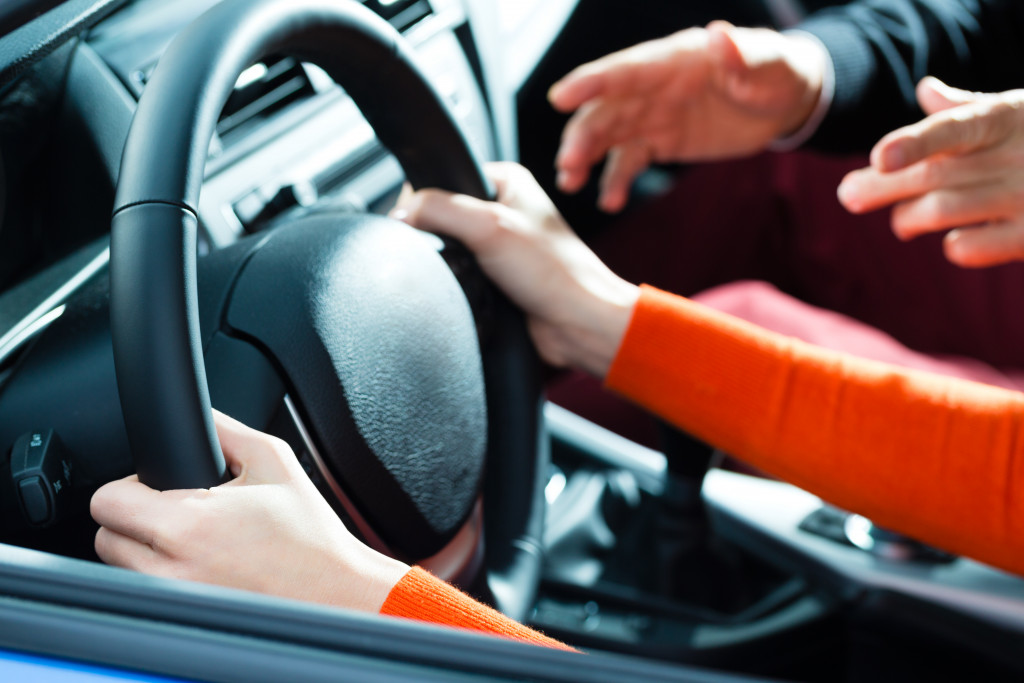In the United States, all states have a minimum age requirement to obtain a driver’s license. This minimum age is sixteen years of age or older in most cases, although there are some exceptions. For example, New Jersey requires prospective drivers to be at least seventeen years old, and Massachusetts has raised the minimum driving age to eighteen.
Ever since the minimum driving age has been raised to sixteen and seventeen years of age, there has been a sharp decrease in fatal accidents involving teenage drivers.
However, all 50 states still struggle to keep teenage fatalities down. This is because common problems such as speeding and reckless driving are still major factors contributing to car crashes involving young drivers.
Graduated Driver Licensing
To reduce the number of fatal accidents that occur each year, states have put in place a variety of graduated driver licensing (GDL) programs. A GDL program is a three-phase system that allows new drivers to gain more driving privileges as they demonstrate safely driving.
The first phase is the learner’s permit phase, which usually requires new drivers to be at least fifteen years old and has held their permit for a certain amount of time. During this phase, new drivers are only allowed to drive with a licensed adult who is at least 21 years old.
The second phase is the provisional license phase, which usually allows new drivers to drive under supervision as long as they meet certain requirements. New drivers must be at least sixteen years old and have held their learner’s permit for a certain amount of time. The last phase is the unrestricted license phase, which usually allows new drivers to drive without any supervision or limitations.
Using Phones While Driving
States have also put in place laws that ban cell phone usage while driving. Many states have banned texting and talking on a cell phone while driving unless the driver is using a hands-free device.
Studies show that this type of activity causes drivers to become distracted and more than half of all car crashes in the United States involve one or more forms of driver distraction.
Drunk Driving

Forty-nine states have passed laws that reduce the legal blood alcohol concentration (BAC) from 0.10 percent to 0.08 percent or lower. In all but two of these states, a BAC of 0.08 percent is considered a “per se” law, and drivers who are at or above this level face stricter penalties for drunk driving. Some drivers even require the help and services of experienced DUI lawyers to get out of trouble.
Dangers of Driving Under the Influence
Driving under the influence of alcohol or drugs is one of the leading causes of car accidents in the United States. It can lead to serious crashes that can injure or even kill innocent people.
In addition to the dangers posed to other drivers, passengers, and pedestrians, getting convicted of a DUI can affect your job and personal life — and it could cost you. A conviction may result in the loss of your driver’s license and increased car insurance rates.
Driving is extremely dangerous even when done responsibly without any distractions or substances impair judgment or coordination. For teens who are not as experienced as adult drivers, it is especially important to be aware of the dangers and to obey all traffic laws. States have put in place a variety of laws and programs to help teen drivers stay safe on the road, but it is ultimately up to each driver to be responsible and drive safely.
Driving without a License
All but four states have a law that makes it illegal to drive without a license. In most cases, driving without a license is a misdemeanor crime. The penalties for this offense vary from state to state but can include fines, jail time, and the suspension or revocation of your driver’s license.
Parent’s Responsibility
New drivers might be held responsible for traffic offenses committed by their children. In some states, parents can be fined if their child is caught driving with a suspended or revoked license.
In most cases, these laws only apply to parents who knew (or should have known) that their child’s license was suspended and did not make arrangements to get the license reinstated.
Drivers Younger Than 18
Most states require all newly licensed drivers under the age of eighteen to complete a probationary period before receiving an unrestricted license. During this time, new drivers cannot drive without adult supervision and may only drive during certain hours. As with most other laws related to teen driving, these restrictions vary from state to state.
Teen drivers must be aware of the dangers associated with driving and to obey all traffic laws. Drivers younger than eighteen must typically complete a probationary period before receiving an unrestricted license. During this time, new drivers cannot drive without adult supervision and may only drive during certain hours.

